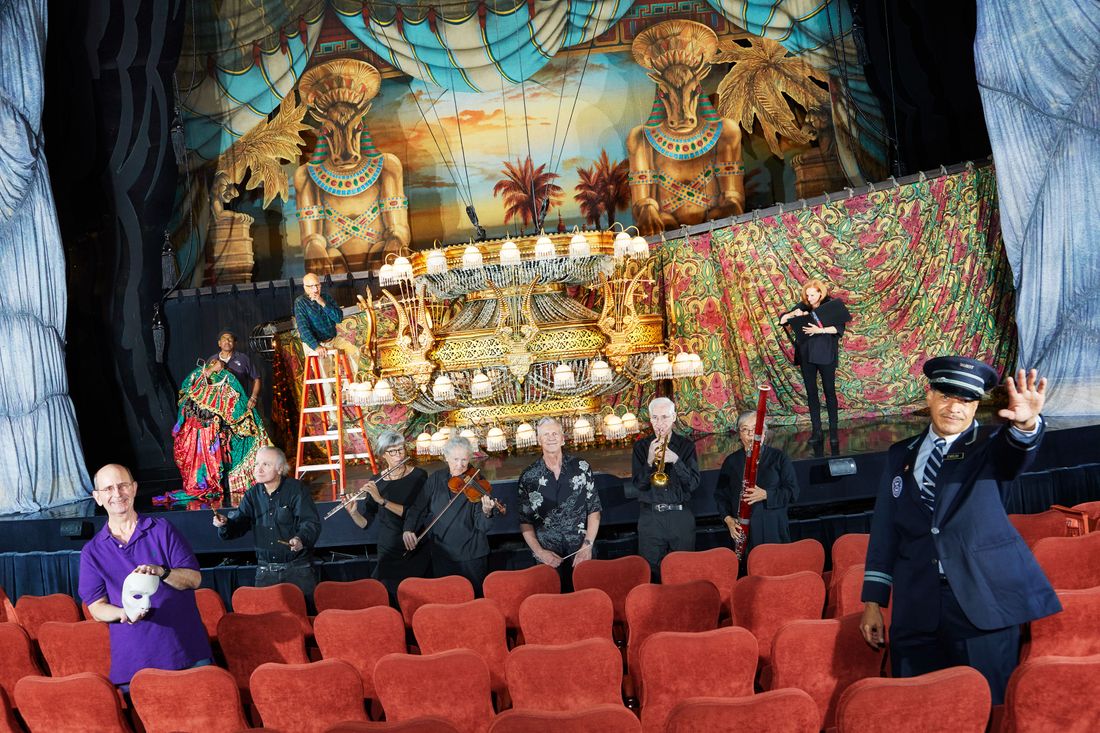
Andrew Lloyd Webber’s Phantom of the Opera arrived from London in January 1988 amid enormous hype, chandelier-crashing its way to seven Tony Awards including Best Musical. With several other big imported shows (Cats, Les Misérables, Miss Saigon), it would reshape Broadway toward spectacle and tourist appeal. “We thought we were hot shit,” says Russell Easley, who got his first job on Broadway as a dresser for the actor playing Raoul, Vicomte de Chagny. “And we were!”
He’s among a small group that stayed with Phantom — then just kept staying. When it ends on February 18, the show’s run will have reached 35 years and 13,909 performances, by far surpassing all previous Broadway records. (It will continue in London, for now, and on tour.) For old-timers like Easley, this is the end of an improbably stable job in an industry where many shows close within weeks. He was full time on the show for more than a decade and then moved on, but he has retained one Phantom gig. “I kept the laundry call because this is the civil service of show business,” he says. “It’s there, and it’s safe.”
Others took similar paths, expanding their careers while staying in Phantom’s orbit. Tara Rubin was a casting associate at the opening, then started her own firm while remaining the show’s casting director (using Lloyd Webber’s and director Hal Prince’s notes from the first auditions). David Caddick was musical supervisor and director at the start, then returned to conduct the 25th anniversary and stayed. Orchestra members typically have contracts for at least 50 percent of performances, allowing them flexibility to come and go; Lowell Hershey, a trumpeter, says that he’s played about three-quarters of Phantom’s shows, more than 9,900 trips into the pit. “I’ve sent three kids to college on this show,” says Atsuko Sato, a bassoonist.
A few people have been here for virtually every performance since 1988. “I walked in with the last of the big pieces of equipment from the shop and never left,” says Alan Lampel, the head electrician. He works the lights every night, including that grand chandelier. So what does the end of a 35-year sure bet mean? Ron Blakley, a dresser since day one, says simply, “I don’t know!”


